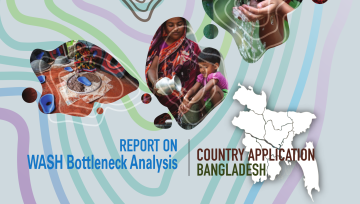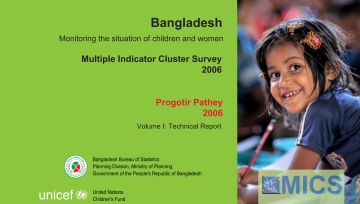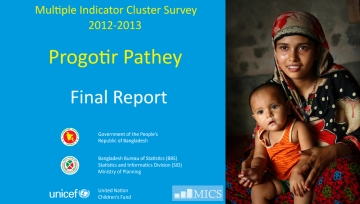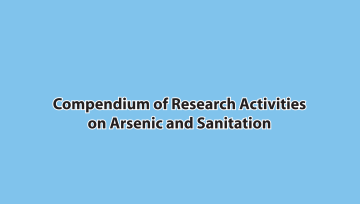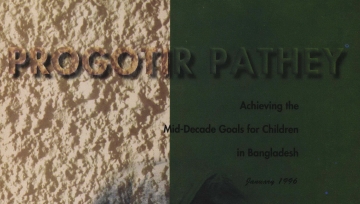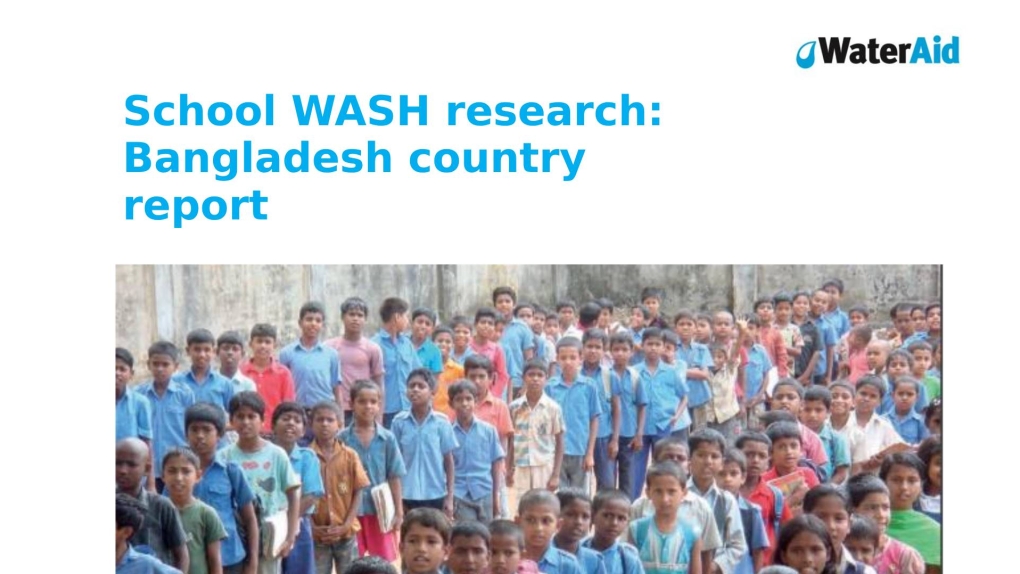
School WASH Research: Bangladesh Country Report

Report Date: April 2016
Over the past 25 years, Bangladesh has almost managed to eradicate open defecation, becoming a role model in the field of sanitation. Although significant efforts remain necessary to consolidate these results, this sanitation breakthrough has already significantly benefitted the health of millions of children. The state of water, sanitation, and hygiene facilities in schools leaves much to be desired. Many schools across the developing world have inadequate facilities. Some have had a form of service in the past, but this has fallen into disrepair – often for want of very minor expenditure and repairs, such as the replacement of a tap, or adjustment of a rainwater gutter. Many schools have three or four generations of poorly constructed toilets or latrines that have not been cared for, and that have filled, collapsed, and been abandoned. Given the long-running concern about the state of school WASH, and against the background of its extensive programmatic and policy work on the topic in many countries, WaterAid took the initiative in 2015 to undertake a program of research. The research aimed to set out a systematic process by which WaterAid could design and improve its strategies and approaches for school WASH. This study was based on in total nine country case studies, including the ones in South Asia (Bangladesh, India, Nepal, and Pakistan), and the ones in East Africa (Ethiopia, Kenya, Rwanda, Tanzania, and Uganda). This School WASH Research: Bangladesh Country Report presents the study conducted in Bangladesh.

